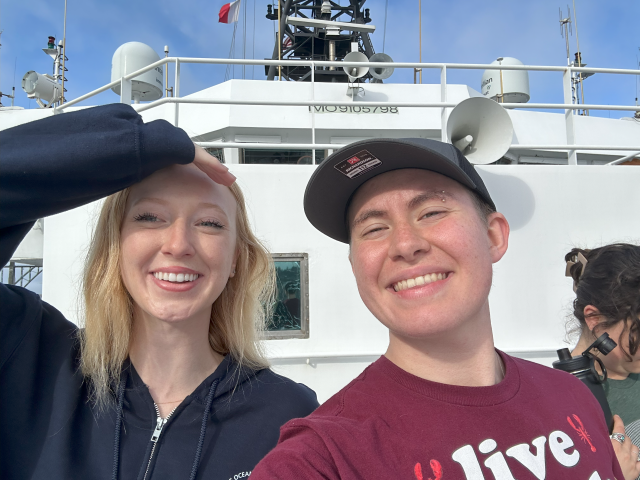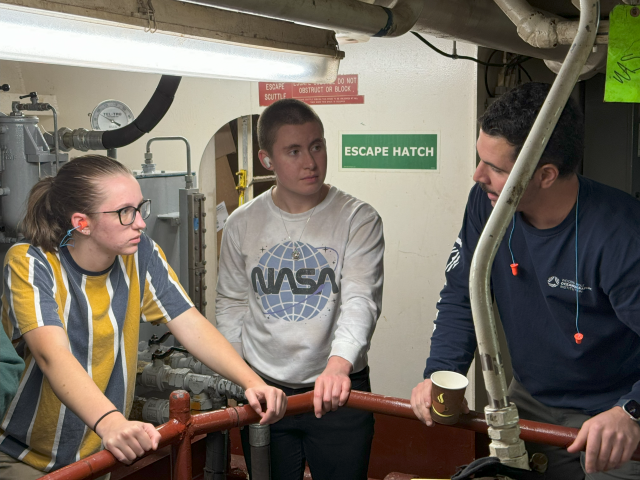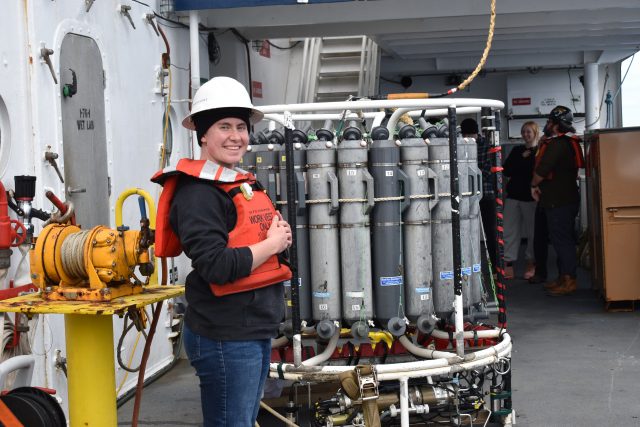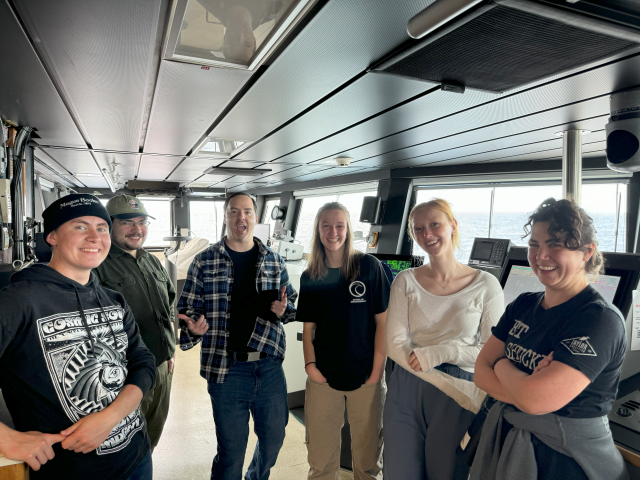Life at Sea: Student Reflections from the VISIONS’24 (Leg 3) Expedition
As part of the Regional Cabled Array operations and maintenance 2024 cruise, a cohort of 24 undergraduates spanning different countries of origin, states, and socio-economic backgrounds, participated in the expedition as part of the UW at-sea experiential learning program called VISIONS. This program has allowed over 200 undergraduate students, studying myriad disciplines, the opportunity to spend 8-45 days at sea on NSF-funded global class research ships utilizing state-of-the art remotely operated vehicles (ROV). Onboard, they stand 4-hr on, 8-hr off watches in the ROV control room working alongside the pilots, and RCA engineers and scientists. They work out on deck, learn about ship operations, and gain skills in oceanographic sampling and analyses of fluids. They see first-hand life forms rarely seen thriving in some of the most biologically productive waters in the ocean along the Cascadia Margin, the abyss at 2900 m water depth, and on 350°C underwater hot springs at the summit of Axial Seamount – the most active underwater volcano off the Oregon coast. The interviews below provide a glimpse of VISIONS’24 student impressions of life at sea and their experiences onboard. For many, their lives are forever changed.
Among the 2024 cohort was Morrigan Havely, whose curiosity and eagerness to explore marine science drove them to join the VISIONS program. Their journey aboard the R/V Atlantis highlights the combination of technical skill-building and personal development that the program supports. Morrigan’s experience reflects the unique community and collaborative spirit found at sea, where learning extends beyond science to include teamwork, resilience, and adaptability.
What motivated you to join the VISIONS program?
An oceanography undergraduate praised his experience with the program the year prior and highly recommended I join. One of my biggest goals with becoming a marine science major was to travel, and after reading about the amazing experiences of past students via their blogs, I knew that I wanted to sail aboard the R/V Atlantis.
What skills did you develop or strengthen during your time at sea that you feel will be valuable in your future career?
Time at sea in general is a super valuable experience, because it’s an entirely different culture than on land. You learn to work with people in extremely close quarters at all hours of the day, even if that means getting up at two in the morning to log Jason events. Learning about ship culture and having an on-board experience was an integral part of VISIONS ‘24.
How do you see the skills and experiences gained from the seagoing and Ocean 411 class, contributing to your role in the future workforce, particularly in science and engineering fields?
Research is a huge part of the marine science field, and Deb made sure to emphasize the importance of integrating our findings with education. VISIONS takes a risk by sending inexperienced undergraduates out on a global class research ship conducting industrial-style operations to learn necessary skills, and I think it’s important to recognize and pay that opportunity forward through sharing what we find aboard with the community.
What advice would you give to other students considering applying for experiential learning programs like VISIONS?
Show your enthusiasm for the program! Enthusiasm is a product of a willingness to learn and a desire to be present, and those are the two most important qualities I’ve seen past VISIONS students exhibit. Even if you don’t have experience on boats or doing research, show in your application that you’re willing to stay up for odd hours to watch hydrothermal vent fields in real time and learn lab skills off-shift. Enthusiasm will make up for lack of experience.
What was the most surprising thing you experienced during your time at sea?
How kind and willing everyone was to teach me. Even outside of the science team, we had crew members showing us how to tie knots and work with the equipment on deck. We cracked jokes with the Jason team members in the control van and ate with the mates in the galley. The community created on a ship extends outside of scientists, and I’m so glad I got to be a part of that camaraderie.

Morrigan (R) and team member onboard R/V Atlantis (Leg 2)

Teammates interact during VISIONS 24 cruise.


